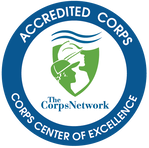|
Engineers are people within the realm of STEM who turn new discoveries and scientific knowledge into items with practical use. With the help of mathematical formulas and data, they find solutions to many of the world's problems. Most engineers are creative, mathematical and analytical and the best possess great interpersonal and leadership skills. Engineers typically garner salaries above the national average and many top the six figure mark at the peak of their careers. Like most STEM degrees, the first two years of engineering coursework is relatively general in scope but becomes highly specialized in the third academic year. If you are a future engineer, it is extremely important to be clear on your preferred area of focus before your junior year in college. Internships are a great way to get your feet wet in the real world of engineering. Through internship experience, you'll have the opportunity to make sure your projected course of study matches up with your career goals. You'll also make professional connections and pave your career path with work experience to develop a stellar resume.
The Working Realm of Engineering All engineers are problem solvers and many supervise engineering technologists, technicians and/or others involved with the project(s) at hand. Most roles involve extensive use of computer simulation during the product design phase. Depending on the type of engineering, your working environment can range from a remote outdoor location to an office building, with some positions requiring extensive travel. Although there are sub categories within each area of specialization, the following engineering branches are recognized within the Federal Government's Standard Occupational Classification (SOC) system:
Engineers Specialize Early in Their Degree Programs Most engineers are able to obtain gainful employment with a comfortable salary after attaining a bachelor's degree. While many appreciate the ability to enter the workforce after four years of study, engineering coursework is said to be challenging at the undergraduate level and specialization begins sooner than other courses of study. As a result, it is absolutely critical to know which branch of engineering is most appealing to you by the beginning of your junior year as an undergraduate. Mechanical, industrial and civil engineering degrees are more versatile than other engineering degrees, yet nothing beats working as an intern to really narrow down your preferred area of focus. Start looking for your first internship during your freshman year to reap the most benefit from these resume enhancing positions; you're sure to make professional connections that may even lead to an offer for full time employment! Some internships, including those offered through G.E.M. Environmental, provide living stipends and/or salaries. G.E.M. Environmental supports STEM students through the provision of scholarships, paid internships and field experiences. We utilize our blog to share suggestions to help you attain the career of your dreams. If you're a STEM student, consider applying for our upcoming scholarship. We'll be reviewing the next batch of applications in March of 2019. Don't forget to scroll down to the bottom of our website and sign up for our newsletter (under "Follow Us") to stay up to date about our upcoming programs and opportunities! In next month's blog entry, we'll wrap up our overview of STEM fields by highlighting careers in mathematics. Mathematicians put the "M" in STEM! References https://typesofengineeringdegrees.org/highest-paid-engineering-jobs/ https://www.topuniversities.com/courses/engineering/which-type-engineering-should-you-study https://studentscholarships.org/salary/679/engineers.php#sthash.rM212TCr.dpbs |
Categories
All
Archives
June 2024
|
G.E.M. Environmental NFP
Geology - Engineering - Minerals - Environmental - Not for Profit
Geology - Engineering - Minerals - Environmental - Not for Profit
Community Partners
|
Programs
|
Get Involved
|
About
|
Follow Us
|
Sponsors & Donors
|
© COPYRIGHT 2017 - 2023. ALL RIGHTS RESERVED. G.E.M. Environmental NFP
GEM Environmental, GEM4STEM, GEM Corps, and Charity Rocks are all Registered Trademarks of G.E.M. Environmental NFP.
Any and all use of Trademarks or Copyrights must be authorized.
GEM Environmental, GEM4STEM, GEM Corps, and Charity Rocks are all Registered Trademarks of G.E.M. Environmental NFP.
Any and all use of Trademarks or Copyrights must be authorized.

 RSS Feed
RSS Feed


